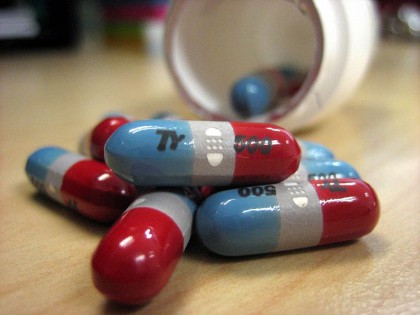Top Class Actions’s website and social media posts use affiliate links. If you make a purchase using such links, we may receive a commission, but it will not result in any additional charges to you. Please review our Affiliate Link Disclosure for more information.

Developing SJS is considered by medical experts to be a medical emergency and patients who develop symptoms should seek treatment by their physician or an emergency room doctor immediately.
In many cases, Stevens Johnson Syndrome develops as a quickly spreading red or purplish rash. Prior to the development of a rash, many people experience flu-like symptoms. These symptoms include: fever, sore mouth and throat, fatigue, cough, and/or burning eyes.
Following the flu-like symptoms, physical symptoms begin to present themselves. These symptoms may include: facial swelling, tongue swelling, hives, skin pain, a fast spreading red or purplish rash, blisters on the skin and mucous membranes (nose, mouth, eyes, and genital areas), and the shedding of skin.
As the top layer of skin dies due to the physical symptoms of the disease, the dead skin may begin to slough off. Any person experiencing any of these physical symptoms should seek medical attention immediately. Patients should inform their physicians of any flu-like symptoms they previously experienced.
When diagnosing Stevens Johnson Syndrome, doctors may be uncertain of the disease’s exact cause. The disease usually results from various infections or allergic reactions. A wide variety of medications are known to cause SJS.
A few of those medications include: pain relievers, such as acetaminophen (Tylenol), ibuprofen (Advil, Motrin), anti gout medications (allopurinol), antibiotics, medications that treat seizures or mental illness, and radiation therapy.
Some of the various infections that cause Stevens Johnson Syndrome include: herpes, pneumonia, HIV and hepatitis. There are also several factors that increase your risk of developing SJS.
These risk factors include viral infections, weakened immune systems, a history of Stevens Johnson Syndrome, and the presence of the gene HLA-B 1502. Scientists believe families of Chinese, Southeast Asian, or Indian descent are more likely to carry the gene.
How is Stevens Johnson Syndrome Treated?
In order to diagnose SJS, a doctor will often look at a patient’s medical history, perform a physical exam, and examine any physical symptoms the patient is currently experiencing. A doctor will confirm any diagnosis with a skin biopsy, by removing a small sample of skin for laboratory testing. A doctor may also suggest patients stop taking any non-essential medications.
Recovery from Stevens Johnson Syndrome may take weeks to months depending on the severity of the symptoms a patient experienced. Treatment of SJS usually focuses on eliminating the underlying cause of the disease, controlling symptoms, and minimizing complications.
Hospital care will focus on fluid replacement, nutrition, and administering medications used to treat pain, discomfort, itching, infection, and skin inflammation.
Stevens Johnson Syndrome Lawsuits
Attorneys are working with patients across the nation to file Stevens Johnson Syndrome lawsuits against pharmaceutical companies. These lawsuits claim that pharmaceutical companies failed to warn the general public of their drugs’ potential risks in developing Stevens Johnson Syndrome.
For many patients, these SJS lawsuits are the only means of paying the extensive medical bills they accumulated during treatment.
Do YOU have a legal claim? Fill out the form on this page now for a free, immediate, and confidential case evaluation. The Stevens Johnson Syndrome attorneys who work with Top Class Actions will contact you if you qualify to let you know if an individual lawsuit or class action lawsuit is best for you. [In general, SJS lawsuits are filed individually by each plaintiff and are not class actions.] Hurry — statutes of limitations may apply.
ATTORNEY ADVERTISING
Top Class Actions is a Proud Member of the American Bar Association
LEGAL INFORMATION IS NOT LEGAL ADVICE
Top Class Actions Legal Statement
©2008 – 2024 Top Class Actions® LLC
Various Trademarks held by their respective owners
This website is not intended for viewing or usage by European Union citizens.
Get Help – It’s Free
Help for Victims of Stevens Johnson Syndrome
If you or a loved one were diagnosed with Stevens Johnson Syndrome (SJS) or toxic epidermal necrolysis (TEN) after taking a prescribed or over-the-counter medication, you may be eligible to take legal action against the drug’s manufacturer. Filing an SJS lawsuit or class action lawsuit may help you obtain compensation for medical bills, pain and suffering, and other damages. Obtain a free and confidential review of your case by filling out the form below.
An attorney will contact you if you qualify to discuss the details of your potential case at no charge to you.
Oops! We could not locate your form.












